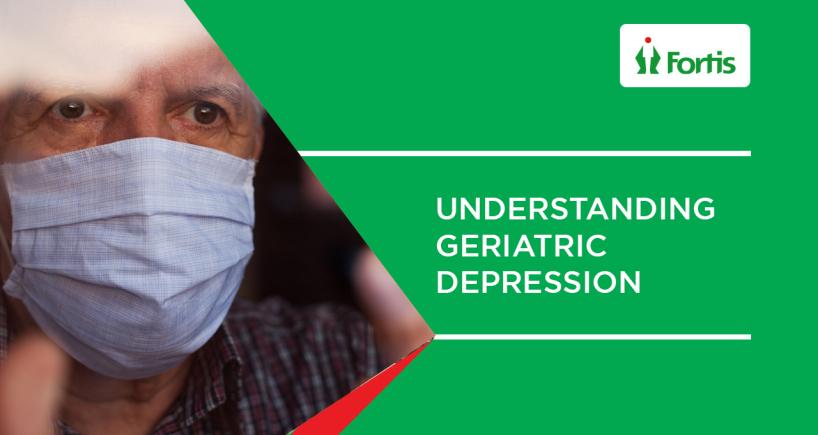
Understanding Geriatric Depression
What is Geriatric Depression
An individual may experience sadness and melancholy as they age and enter their senior years. According to the World Health Organization (WHO), while a majority of senior citizens have good mental health, many are at a risk of acquiring mental health problems including depression. A prolonged loss of interest and depressive moods are symptoms of geriatric depression, a mood disorder that affects older adults.
Depression is difficult to diagnose in the elder population at times due to incorrect diagnosis and lack of proper information, care and treatment. Given that elderly individuals frequently deal with medications, ailments, and changes in lifestyle, depression may set in for some of them. According to research, depression affects almost one-third of elderly population in India, with a predominance of females.* Elderly individuals who live by themselves run the risk of isolating themselves and avoiding the care they need out of fear of losing their independence.
Signs of Geriatric Depression
The signs of depression in senior citizens are the same as those in younger generations. The majority of the geriatric population who suffer from depression may not even be aware that they are dealing with a mental condition which can be treated easily. Cognitive, behavioural, and somatic symptoms might be the obvious signs of geriatric depression. Fatigue, crying, aloofness, sleep disturbances, changes in appetite, discontentment, irritability, isolation, impaired memory, poor attention and concentration, loss of interest in life, or suicide are some symptoms to watch for while diagnosing depression.
Evaluation
A mental health professional will evaluate a patient's symptoms and make a diagnosis of geriatric depression by considering their daily routine, past family medical history, changes in mood, and changes in behaviour. Geriatric depression may have other factors to be taken into account, such as grieving over loss of loved ones, diminished mobility, retirement, financial concerns, substance abuse, and fear of death.
Treatment
Depression in the elderly can be treated with medication, therapy and lifestyle modifications. Some people may require all of the three, whereas others will require a combination of the three. Dietary changes, increased physical activity, adequate amount of sleep, exploring new interests, and socialization can also help to manage the symptoms.
Depression, which is associated with sadness and distress, can harm one's physical and emotional well-being and can also negatively impact social interaction. The progression of treatment for various chronic conditions can also be negatively impacted due to depression as the individual may refuse to follow up with doctors regularly or may not stick to their medical regime. Older individuals dealing with depression may seek medical attention for more frequently for physical symptoms and illnesses, take more medication, and stay in the hospital for longer periods of time.
Conclusion
Depression and other mental health issues, if left untreated can have a detrimental effect on one's health and lead to greater impairment, caregiver burden, and a lower quality of life. Additionally, this mood disorder can also increase the rate of mortality. Fortunately, the treatments available are extremely effective and can significantly improve one’s quality of life.
Family and loved ones also play a significant role in an elderly individual’s care. To help your loved one lead a fulfilling life, it is essential to encourage therapy and provide necessary support.
Counselling Psychologist
Reference:
* (Pilania, M., Yadav, V., Bairwa, M., Behera, P., Gupta, S. D., Khurana, H., Mohan, V., Baniya, G., & Poongothai, S. (2019). Prevalence of depression among the elderly (60 years and above) population in India, 1997–2016: A systematic review and meta-analysis. BMC Public Health, 19(1). https://doi.org/10.1186/s12889-019-7136-z)









